Quick Links
Sometimes, inDungeons & Dragons, the best-laid plans, or parties, go awry.
While fun, this responsibility also comes with the unpleasant duty of maintaining peace at a table.
Wild cackles, raised eyebrows, and nefarious plans await in Evil Dungeons & Dragons.

But, for the sake of a game, sometimes a player has to go.
Ultimately, your reasons are your own.
But there needs to be a reason, orelse you may come off as exclusionary.
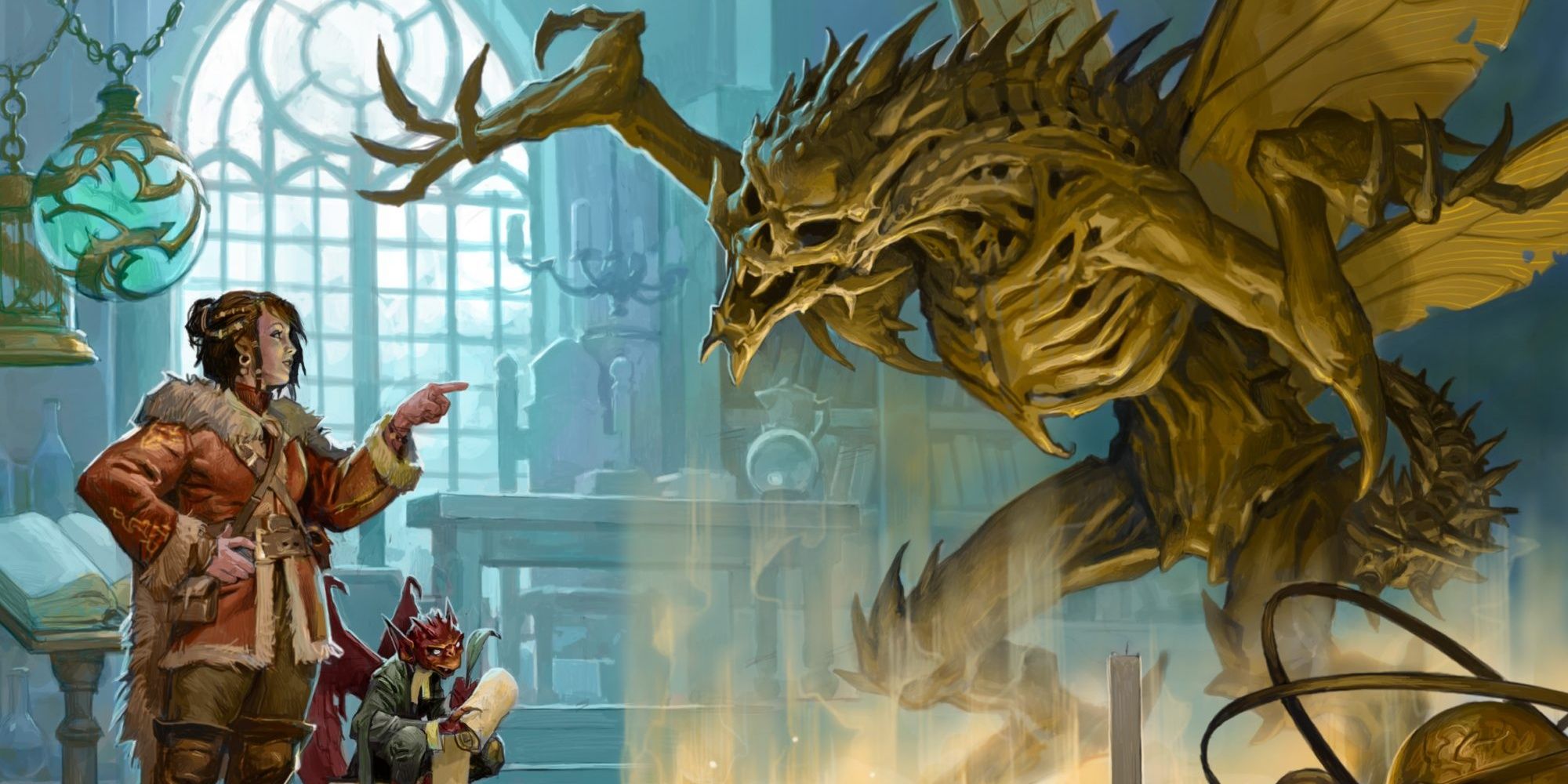
art via Wizards of the Coast
Some players justdon’t work well at certain tables.This is no one’s fault.
Roleplay-heavy players may draw out sessions in combat-oriented campaigns, or vice versa.
It isnotyour job to mediate issues beyond what takes place in the game.
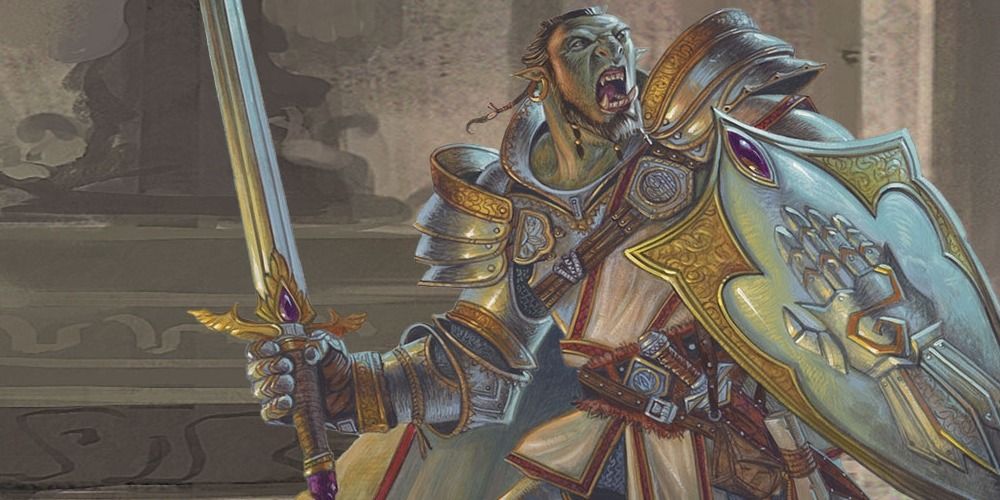
art via Wizards of the Coast
This will allow the potential problem to be minimized slightly.
The goal is to be honest with the player, but not offensive.
You may also want to soften the departure, especially if you and the person in question are close.
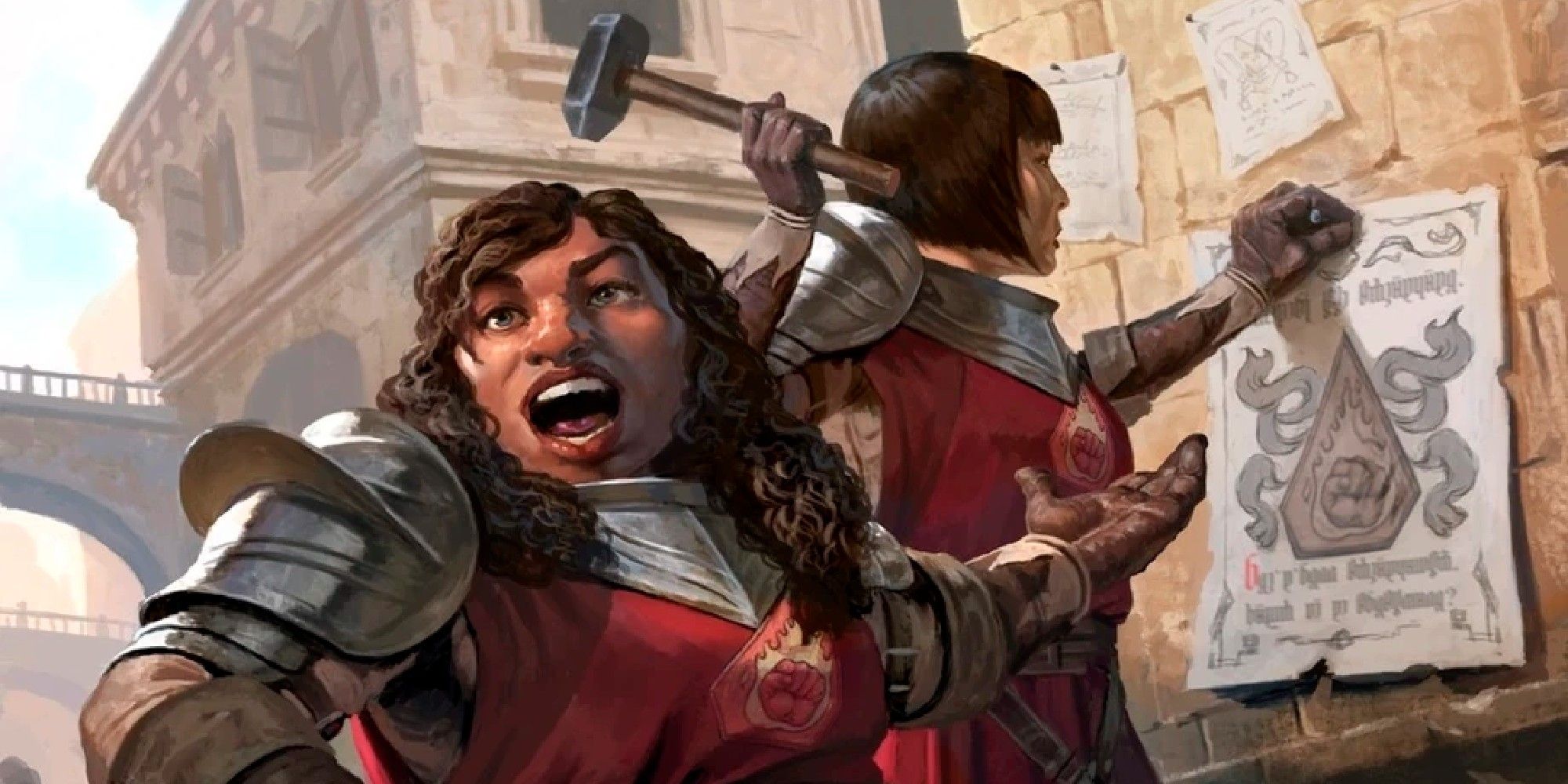
Recruitment Drive by Diego Gisbert
It may happen, anyway.
Acknowledge that you could only do so much, andstay respectful!
What To Do With The Character
The player is out, but the story continues.
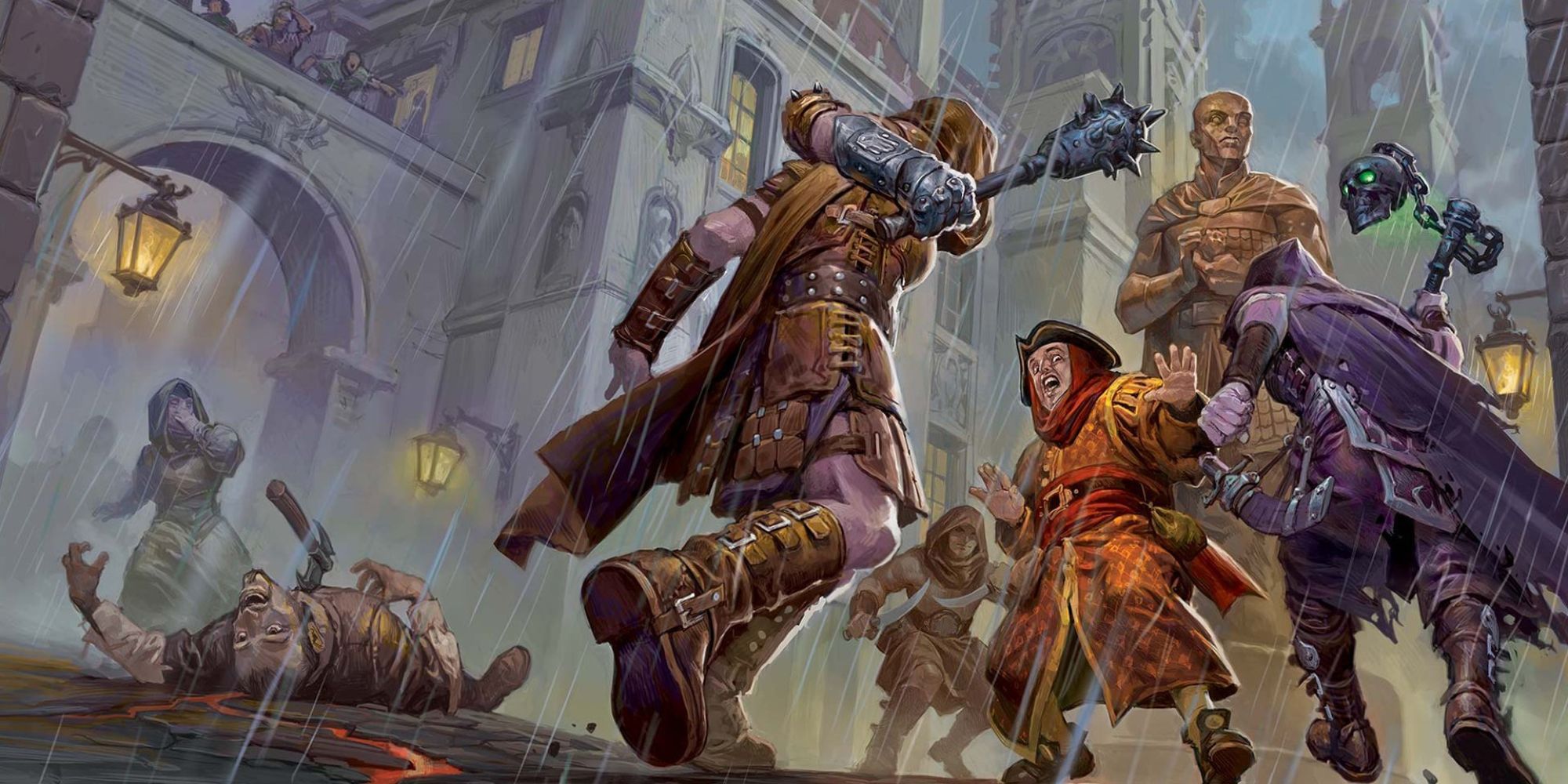
Dead End Via Wizards of the Coast
So, what happens to the character and any plots surrounding the character?
This is, objectively, theeasiest way to go about this.
The character leaves, and the players continue on.
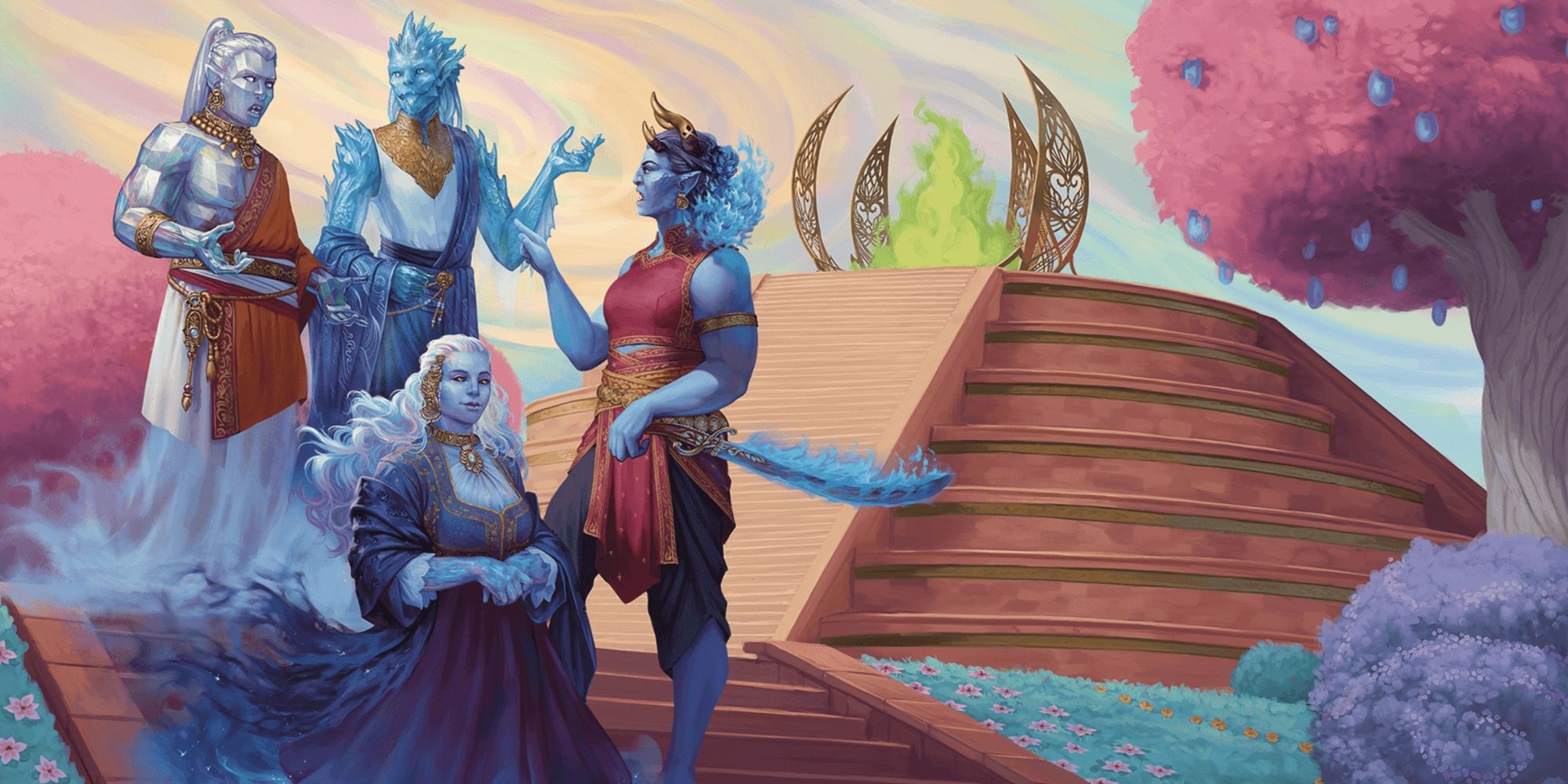
Elemental Paragons, The Storm Lords Guarding Fortitude’s Gate To Arcadia by Linda Lithen
Death
Uh oh!
Sometimes a good death canhelp motivate the players.It can also help create a new plot thread or Big Bad.
However,you should avoid killing the character out of vengeance.It may come off as childish.
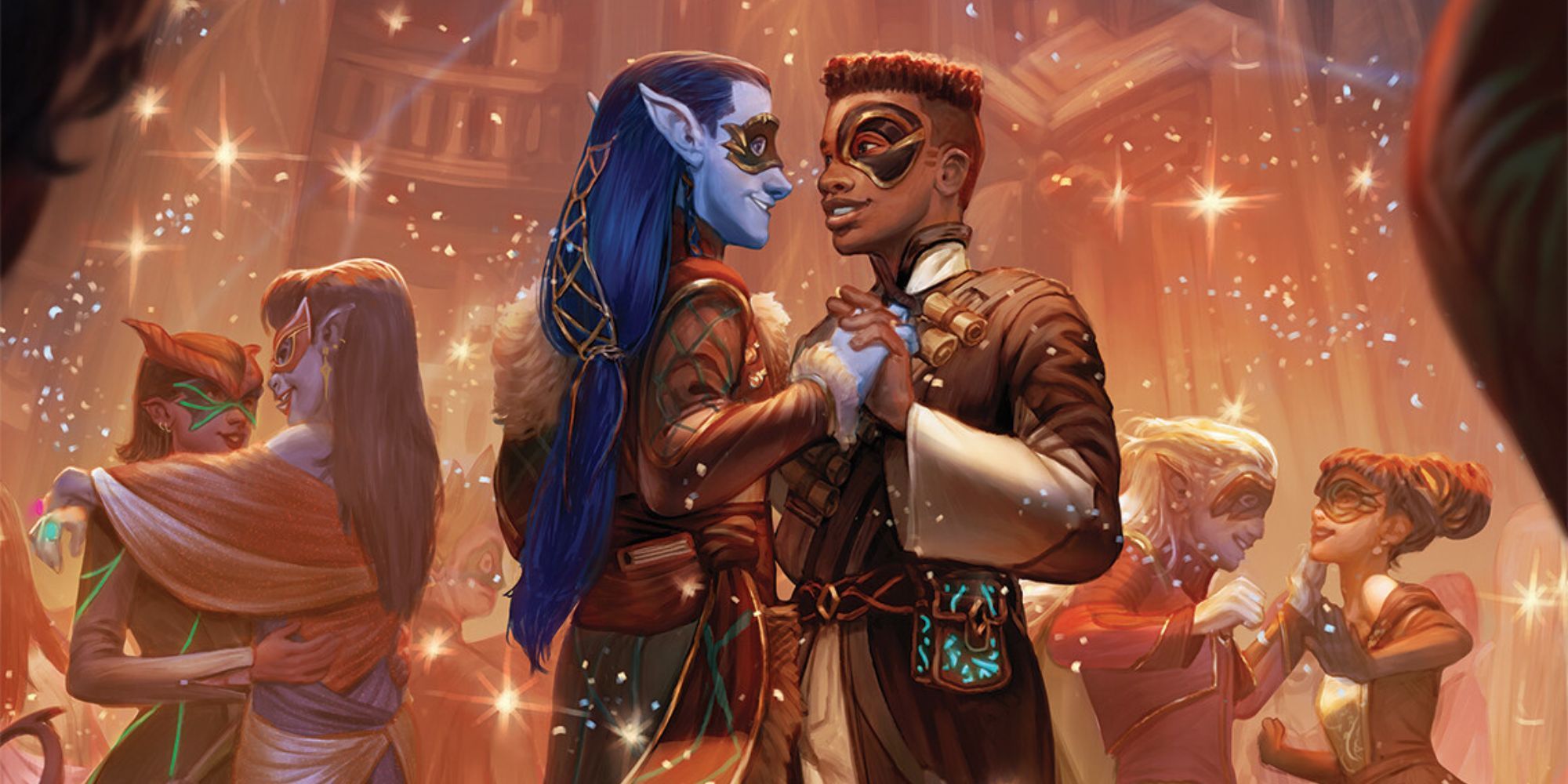
Be careful with this one!
This also leaves it open for the player to potentially return, if they come back to the light.
Mass Hallucination
Who doesn’t love a mass hallucination?

Can you feel the love in this session tonight?
Pretty sure that’s how that song goes.
